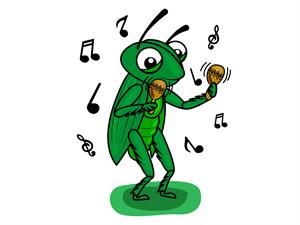
PUMPA - SMART LEARNING
எங்கள் ஆசிரியர்களுடன் 1-ஆன்-1 ஆலோசனை நேரத்தைப் பெறுங்கள். டாப்பர் ஆவதற்கு நாங்கள் பயிற்சி அளிப்போம்
Book Free DemoThe sonnet opens with the poet stating that the "poetry of earth" is consistently alive. "The poetry of earth is never dead" explains how the earth will keep being wonderful and graceful forever. During summer, when the birds feel drained in the blistering summer and take cover under the shady parts of trees, a voice could be heard from the ground, taking the lead in the nature's song.
The voice that runs from hedge to hedge and around the newly cut grasslands (meadows) belongs to the grasshopper. "A voice will run" suggests how the Grasshopper's voice is powerful and can be heard from far away. The Grasshopper takes control over the duty of continuing with the never-ending song in any event, such as during summer, as it is a luxury for him. The Grasshopper is fun-loving and cheerful in summer. When he gets tired of fun (singing and jumping), he goes under some pleasant weed (i.e. grass) to take rest.
The voice that runs from hedge to hedge and around the newly cut grasslands (meadows) belongs to the grasshopper. "A voice will run" suggests how the Grasshopper's voice is powerful and can be heard from far away. The Grasshopper takes control over the duty of continuing with the never-ending song in any event, such as during summer, as it is a luxury for him. The Grasshopper is fun-loving and cheerful in summer. When he gets tired of fun (singing and jumping), he goes under some pleasant weed (i.e. grass) to take rest.

Grasshopper taking rest during summer
Nature is loaded with components that moderate the temperature to make the conditions livable for the living creatures. Along these lines, in any event, during unbelievable warmth, there are to be found in normal components like the "cooling tree" and "beautiful weed." The Grasshopper sings enthusiastically and offers effortlessness to every single one of the people who had gotten worrisome under the elements of the "blistering sun."

Grasshopper sings enthusiastsically
The poet repeats the main theme of the sonnet that the voice of the earth never comes to an end, even during the winter.
The line "the frost has wrought a silence"- is an instance of personification. Frost is personified as a person who brings silence in his wake. Unlike summer, winter is presumed as a time of inactivity: trees look barren, birds have migrated, and people take sanctuary inside their homes. However, the poet says that the silence is broken through the song of crickets, whose music gets only louder with time. When the small fragments of snow bring silence, one can hear the voice of the cricket's song from the stone.
"The Crickets song, in warmth, increasing ever" is alluded to as a metaphor since this line states that the cricket's song will remind you of summer and its warmth during the winter when it's cold.

Cricket sings during winter
The poet says that the person who is half-lost in drowsiness would think that it is the grasshopper that is singing in some grassy hills. The cricket's song sounds similar to that of a grasshopper from some grassy hills during the summer. Hence, people experiencing winter might be reminded of the warmth of the summer. In this way, nature keeps itself alive, merry-making and singing, irrespective of the kind of weather people face.

Cricket's song sounds exactly like the Grasshopper's voice